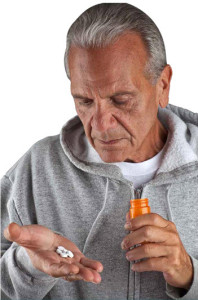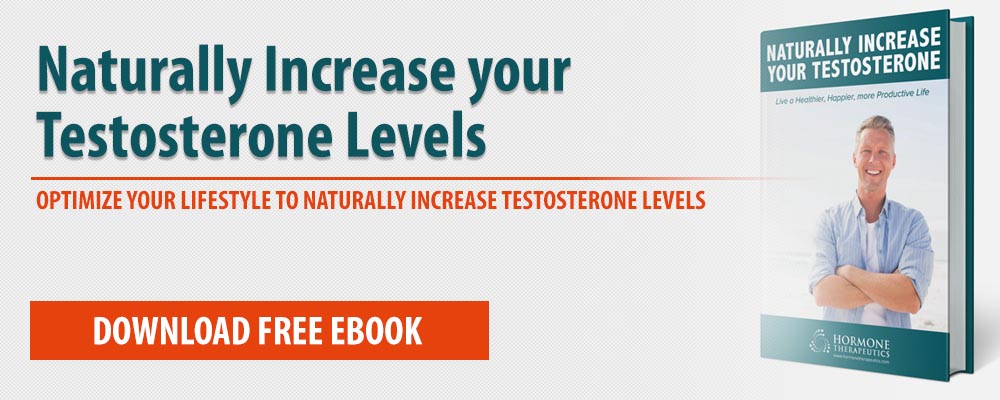Ketogenic Diet – A Great Testosterone Booster
When done properly, a ketogenic diet, a.k.a Keto Diet, is a simple, effective tool to gain more muscles and lose fats by restricting carbs and turning fats into a fuel source through Ketosis.
If you will follow the standard Ketogenic diet, you will be limiting carbs to less than 30 grams per day. YES – only 30 grams of carbs, which is equivalent to one medium-sized banana. Your normal daily foods that have carbs include: Wheat, Bread, Cereal, Pasta, Milk, Most fruits, and Potatoes (Sweet Potatoes). These foods, although referred to as good carbs, cannot be eaten in a Ketogenic Diet. The kind of carbs found in these good carbs sources are not allowed in the Keto Diet. What you’ll rather eat is fats, and lots of it.
Ketogenic Diet
A Ketogenic Diet requires two things:
- Maximize the intake of fat
- Limit the intake of carbohydrates
The primary reason for restricting carbohydrates while taking the large amounts of fat, is that when fat turns to be the main source of fuel for the body, it is broken down into Ketones by the liver. You’ll function with these ketones rather than glucose, which is the by-product of carbohydrates.

When you are in a state of using ketones as fuel, you are now in state of Ketosis, which means the body is deprived of glucose and all the energy consumed by the body is coming from ketones. This state allows for rapid fat loss since stored body fat is able to be burned for fuel due to low levels of insulin. Moderate to high levels of insulin prevent the metabolism of stored fat. When we eat carbs, our blood sugars rise causing insulin levels to rise.
Diet is one of the most influential components to maintaining proper brain health as we age, and to help maintain memory and cognitive function, it is important to take brain health nutrients to fight aging. READ MORE
Ketosis – ‘the Keto Diet’
Under Keto Diet, you’re going to eat plenty of fatty foods. Though it seems like there are a dearth of healthy fatty foods, there are still lots of nutritious foods to choose from.
- Eggs
- Steak
- Full fat cheese
- Full fat cream
- Bacon
- Butter
- Fish
- Low carb protein shakes
- Mushrooms
- Green vegetables
- Roasted chicken
- Coffee
- Other meats
Once you get used to eating foods with low carbs and high fat contents, it will be very easy for you to lose weight and attain the missing energy and passion in your life. The initial diet shift is not an easy thing to do, but definitely something that brings a lot of positive changes to your life. Most people have experienced not only weight loss, but also benefits like:
- Improved thyroid function
- Enhanced mental focus and brain function
- Increased testosterone levels
- Steady supply of energy
- Reduced risk of cancer
- Reduced inflammation induced by carbohydrates intake
- Reduced water retention
Testosterone Therapy
Being a leading provider of low testosterone therapy solutions, we are always looking for newer ways to improve blood testosterone levels for our patients. We believe on improving testosterone levels with not only different testosterone treatment options that we offer, but also with diet, exercise, and therapeutic methods. Over the years, we have seen that our patients have greatly benefited from our Low-T therapy and treatment solutions, and our network of patients have grown across across all major cities of United States, including: Los Angeles, Houston, Miami, Chicago, Jersey City, and Seattle.
If you or a loved one is dealing with low blood testosterone levels, contact us today to get a free evaluation of your Low-T symptoms and see how our treatment options can help you with your low testosterone.
Sign up today and Get our ebook, ‘Naturally Increase Your Testosterone Levels’ absolutely FREE.
Ketogenic Diet – A Great Testosterone Booster
Umer Chaudhary December 7th, 2016
Posted In: Health & Wellness
Tags: blood acidosis, carbohydrates, diabetes, fat loss, glucose, high fat diet, insulin, keto diet, ketogenic diet, ketones, ketosis, testosterone, weight loss
How does Testosterone Affect Sexual Health?
Can testosterone improve sexual health?
Many factors fuel the sexual health of men as well as their sexual performance, ability to perform and changes in their ability to function as they once could. Low testosterone plays a significant factor in all of these and treating Low T can improve interest in sex, sexual function and sexual performance.
The Effects of Low T on Sexual Health
While we do understand that testosterone production comes from a healthy HPA Axis, or communication between your Hypothalamus, Pituitary Glands, Adrenals and Testicles, science still does not understand exactly how testosterone improves sexual health or performance. As you probably noticed in High School, College or amongst your friends, there is no normal level of sexual interest amongst men or women.
Like your testosterone levels, it peaks around 19 and usually slowly declines for the rest of your life. Each person takes a different path, however, and declining sexual interest is typically tied to declining testosterone levels. These levels can follow a steady decline, or can be accelerated by health issues, stress, poor sleep and even by keeping sexually active. Many men can lose sexual interest at normal testosterone levels or maintain sexual health even at low testosterone levels but as testosterone levels get depleted it will universally effect sexual interest and performance.
One study of Men in the NE of the US showed 11% of men had a lack of sex drive. The researchers also found 28% of men with low testosterone levels had a low libido which means that men with low testosterone levels were 256% more likely to have low sex drive or low libido. The average age of the study participants was 47.
Low Testosterone and Erectile Dysfunction

Erectile Dysfunction, or ED, can be caused by many health problems including low testosterone, atherosclerosis (hardening of the arteries), diabetes, high blood pressure and high cholesterol. Those last three items all cause hardening of the arteries. If they are damaged, the penis has difficulty dilating and bringing sufficient blood flow required for an erection. Testosterone therapy can lead to increased libido and interaction and connection between the brain and penis.
Viagra is an example of an oral PDE5 inhibitors that encourage an increase in nitric oxide which dilates the blood vessels and encourages more blood flow to the penis. Three potent selective PDE5 inhibitors (sildenafil (Viagra; Pfizer), tadalafil (Cialis; Lilly), and vardenafil (Levitra; Bayer)) are currently available. Testosterone therapy will often increase the libido and sexual function to erase Erectile Dysfunction, but often our physicians will prescribe a combination with PDE5 inhibitors as well.
Studies are showing that men with classic hypogonadism, or low testosterone, have a reduced response to PDE5 inhibitors and see a significant response improvement with Testosterone Therapy. For patients who fail to see ED improvement following TRT and PDE5 inhibitors we can prescribe and test the direct injectable Trimix.
The Connection of Testosterone Levels and Sexual Health
 While this sounds like a juvenile sex joke, we are now seeing that lowered testosterone levels lead to a decreased sex life, but that a decreased sex life also can lower ones testosterone levels in a study at the University of Sydney in Australia.
While this sounds like a juvenile sex joke, we are now seeing that lowered testosterone levels lead to a decreased sex life, but that a decreased sex life also can lower ones testosterone levels in a study at the University of Sydney in Australia.
Researchers followed 1,700 men over the age of 70. The study asked questions and measured a number of things. The study tracked the ability to keep and maintain an erection. It measured the frequency that sexual activity led to ejaculation (through masturbation or sexual intercourse). The study also tracked libido and sexual health versus earlier times in their lives.
During the study, all of the men had blood tests regularly taken and the following tests measured: Total Testosterone, Free Testosterone, Estrogen, SHGB and some other hormones.
Researchers discovered a 10% reduction in testosterone levels led to a noticeable decrease in sexual activity but no change in the number of erections. Another study showed that testosterone levels increased on night after sexual activity without any increase on nights where there was no sexual activity. Physicians are concerned that a lack of sexual activity can accelerate low testosterone.
 A further study showed that men taking Cialis had higher testosterone levels than men taking Viagra. Both drugs are PDE5 inhibitors to boost nitric oxide and blood flow to the penis. Cialis, however, last 36 hours for most people rather than 6-8 hours. Cialis users typically have more intercourse over this extended time period.
A further study showed that men taking Cialis had higher testosterone levels than men taking Viagra. Both drugs are PDE5 inhibitors to boost nitric oxide and blood flow to the penis. Cialis, however, last 36 hours for most people rather than 6-8 hours. Cialis users typically have more intercourse over this extended time period.
The researchers concluded that “as it is unlikely that the two drugs have a different direct effect on the pituitary-testis axis, this effect is probably due to the higher frequency of full sexual intercourse.”
A Chinese study observed a group of men that abstained from ejaculation for one week and had their testosterone levels tested each day. Research showed that abstaining for 6 days had no effect on testosterone levels, however, on the seventh day the testosterone levels surged to 145.7% of the baseline then plummeted on the 8th day.
The researchers believe the testosterone surge was the result of a negative feedback suppression of Luteinizing hormone (LH secretion) which is essential for testosterone production.
Hormone Therapeutics aims to help people looking to improve and optimize their health through natural means or through the guidance of our physicians.
Don’t miss out our free weekly tips and news on Low T, hormone balancing, healthy living, nutrition and a lot more.
Want more?

Sign up today and Get our ebook, ‘Naturally Increase Your Testosterone Levels’ absolutely FREE.
How does Testosterone Affect Sexual Health?
Saleamp Design November 15th, 2016
Posted In: Low T Info
Tags: atherosclerosis, Bayer, blood flow, boner, Cialis, diabetes, dilates, ED, erectile dysfunction, erection, high blood pressure, high cholesterol, hypogonadism, inhibitors, intercourse, Levitra, LH, LH secretion, libido, Lilly, Lutenizing hormone, nitric oxide, PDE5, PDE5 inhibitors, penis, Pfizer, pituitary, sex drive, sexual health, sexual performance, sildenafil, tadalafil, testes, testicles, testosterone level, testosterone therapy, trimix, TRT, vardenafil, Viagra
Risks of Low Testosterone
Thirteen million US men suffer from low testosterone and not receiving treatment. These men are decreasing their quality of life while putting themselves at a higher health risk for a large number of issues. What are the risks of Low Testosterone? Researchers are uncovering deeper and deeper connections with testosterone and its connections to our health. Many of the illnesses men suffer as they age are directly correlated with low testosterone levels including, obesity, high blood pressure, diabetes and metabolic syndrome. In 2015, an analysis of over 83,000 US military veterans showed that those with low testosterone supplemented back to normal testosterone levels, under physician guidance, had lower incidence of heart attack, stroke, prostate cancer or death than those left untreated.
Risks of Low Testosterone
Saleamp Design February 14th, 2015
Posted In: Health & Wellness
Tags: anemia, cardiovascular disease, diabetes, health risks, increased body fat, living with low t, low t, low t levels, low t risks, low testosterone levels, obesity, testosterone therapy



